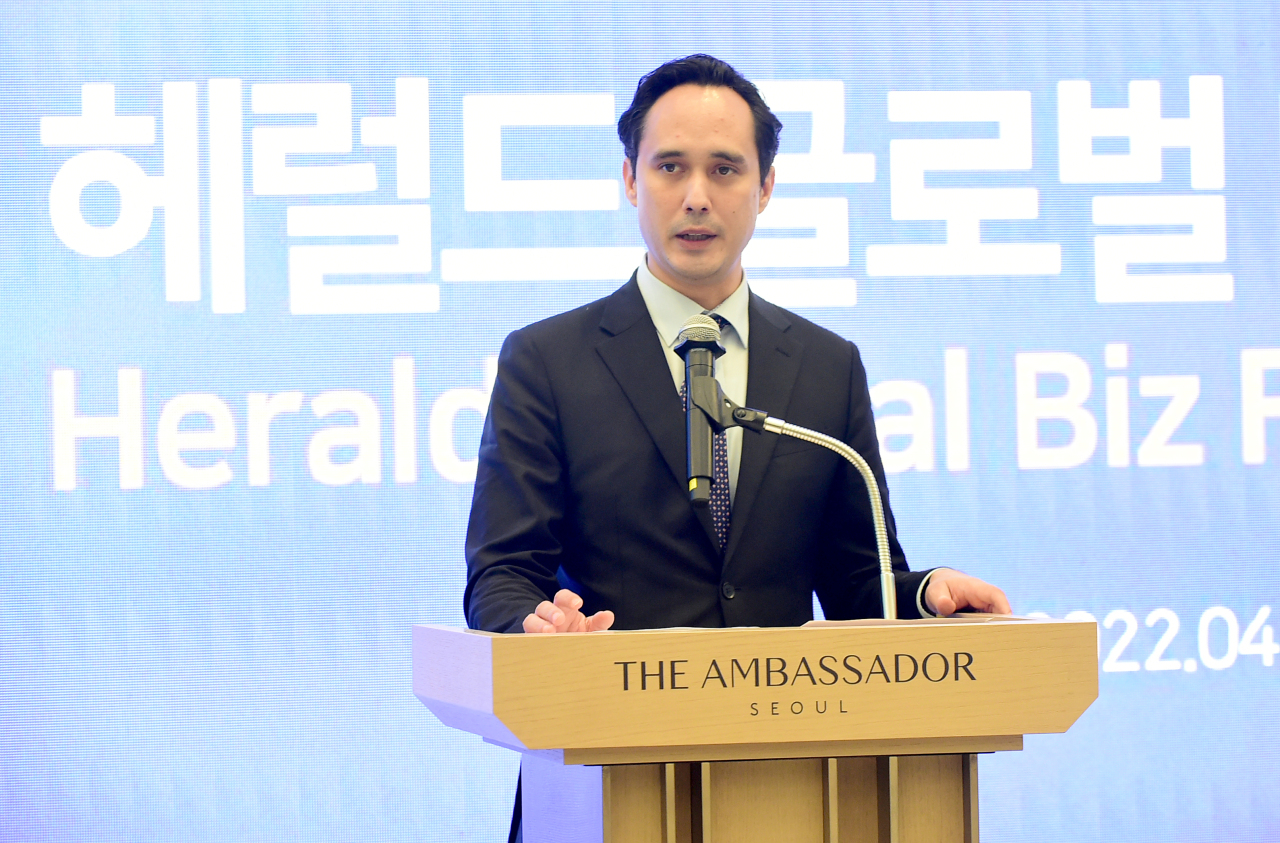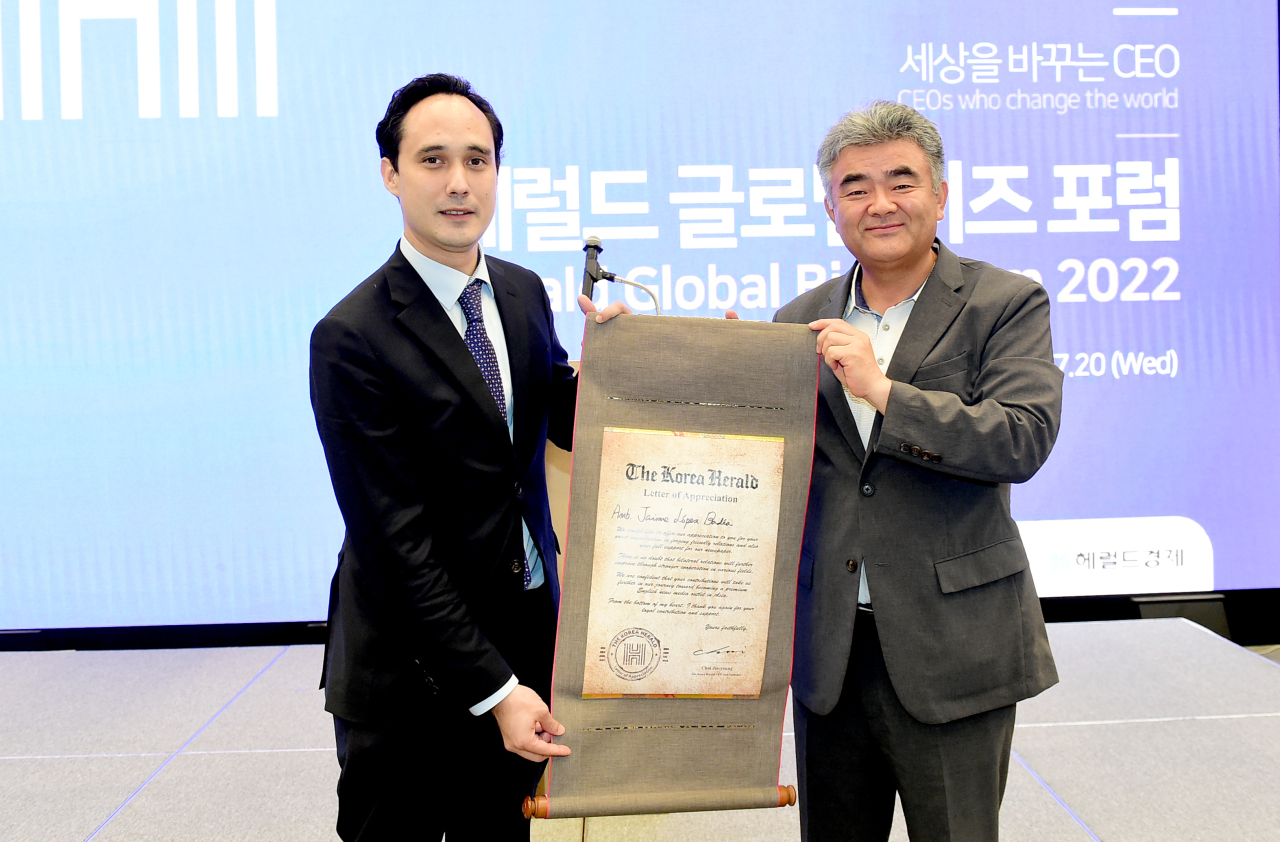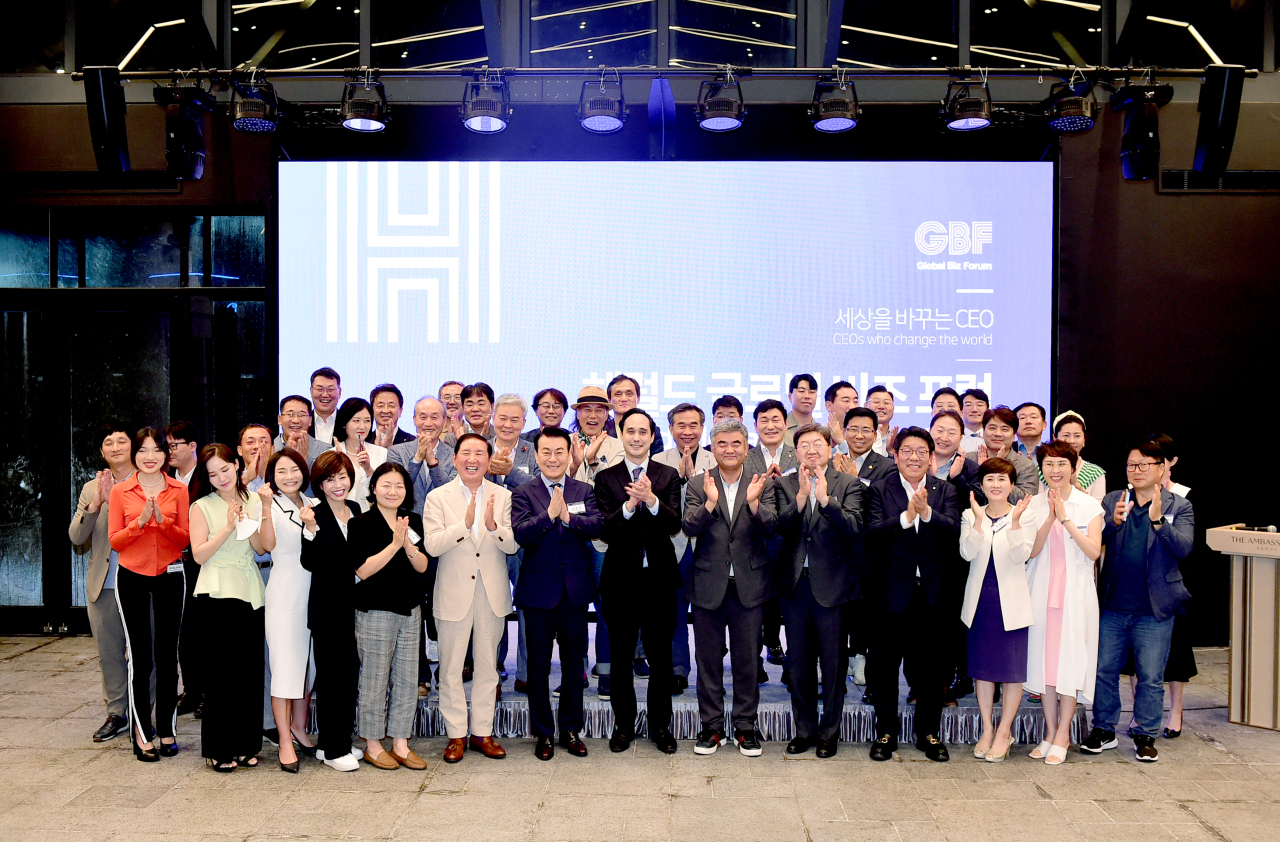 |
El Salvador Ambassador to Korea Jaime Jose Lopez delivers remarks at the second session of The Korea Herald’s Global Business Forum at the Ambassador Hotel in Seoul, July 13. (Jenny Sung) |
Korea’s contribution to the Central American Bank of Economic Integration (CABEI), a regional development bank, has helped boost El Salvador’s economic development, El Salvador Ambassador to Korea Jaime Jose Lopez Badia said at the Global Business Forum hosted by The Korea Herald.
Korea’s entry into CABEI in January 2020 as one of seven nonregional member countries and its injection of an initial capital of $450 million for private and public sector infrastructure projects in the region, was a paramount step to strengthen relations, Lopez said at the forum on July 13.
Lopez said Korea’s funding support via the Economic Development Cooperation Fund, as well as the establishment of the new CABEI office in Seoul this year, helps empower the region and its integration process.
To date, $255.7 million from the fund has been used to support five ongoing infrastructure projects worth $863 million in the region, according to CABEI. The five initiatives include improving sanitation in Nicaragua, an infrastructure and hospital equipment program in Guatemala, a highway construction in El Salvador, expansion of the potable water supply system in Honduras and a policy-based loan for the Dominican Republic.
The funding, managed by the Export-Import Bank of Korea, will foster cooperation in more development projects, trade, business exchanges; and granting financing instruments with concessional conditions would help pave the way for large infrastructure and logistics projects, Lopez said.
 |
Herald Group Chairman Jung Won-ju (right) presents a letter of appreciation to El Salvador Ambassador to Korea Jaime Jose Lopez at the second session of The Korea Herald’s Global Business Forum at the Ambassador Hotel in Seoul, July 13. (Jenny Sung) |
“It would benefit El Salvador, Korea and Korean private companies,” Lopez said.
“All these elements allow us to have a comprehensive system to partner with South Korea on our economic development proposals,“ said Lopez.
Public Works and Transportation Minister Edgar Romeo Rodriguez had recently promoted the $411 million highway construction project in El Salvador on a trip to Korea.
Korea’s participation in such strategic projects brings Asia’s fourth-largest economy closer to the Central American region, Lopez said, adding that Korean private firms are strong contenders to win bids for the large strategic projects.
Lopez also discussed El Salvador President Nayib Bukele’s strategic projects to modernize and expand ports, airports, train and metro systems, and interconnectivity along the 305-kilometer Pacific Coast.
“We have received expressions of interest from Korean companies,” said Lopez, who did not elaborate further.
With over 60 years of diplomatic relations behind them, El Salvador and Korea have worked together financially, and the two have a promising future in building a win-win economic climate, Lopez said.
El Salvador’s free trade agreement and investment climate offer numerous opportunities to Korea with an attractive trade platform, preferential tariffs and allocation for nearshoring of production going to the American continent.
Korean companies in El Salvador have generated around 7,500 jobs, he added.
He highlighted El Salvador’s adoption of bitcoin as a legal tender nationwide last year, which has positioned the Central American country at the center of the digital transformation global agenda, promotes investments, and innovative solutions.
He also highlighted the country’s rankings in the Global Business Complexity Index.
“El Salvador is the least complex country to do business in Latin America,” he said.
 |
CEOs and guests pose for a group photo at the second session of The Korea Herald’s Global Business Forum at the Ambassador Hotel in Seoul, July 13. (Jenny Sung) |
The Global Business Complexity Index analyzes rules, regulations, penalties, accounting tax and hiring processes.
The El Salvador-Korea free trade agreement, which came into force on Jan. 1, 2020, has resulted in a historical 35 percent yearly increase in exports in 2021, said Lopez.
“El Salvador stands among the most cost-effective countries in the region, offering industrial free zones and service parks where companies are benefited from different tax incentives,” Lopez said, referring to a report by fDi Intelligence of the Financial Times.
He added that El Salvador has competitive electricity rates for commercial and industrial users, as well as competitive tax rates and modern infrastructure and roads, which secure logistics and connectivity.
“El Salvador was one of the few countries in Latin America that registered an important economic growth level, reaching 10.3 percent in 2021 after COVID-19,” Lopez said.
The ambassador encouraged the CEOs in attendance at the forum to enter the Latin-American market noting 2022 as an appropriate year to assess El Salvador-Korea historical relations, outline future direction to facilitate businesses, and implement complementary initiatives to achieve development and prosperity for El Salvadorans and Koreans.
By Sanjay Kumar (
sanjaykumar@heraldcorp.com)










![[Today’s K-pop] Blackpink’s Jennie, Lisa invited to Coachella as solo acts](http://res.heraldm.com/phpwas/restmb_idxmake.php?idx=644&simg=/content/image/2024/11/21/20241121050099_0.jpg)